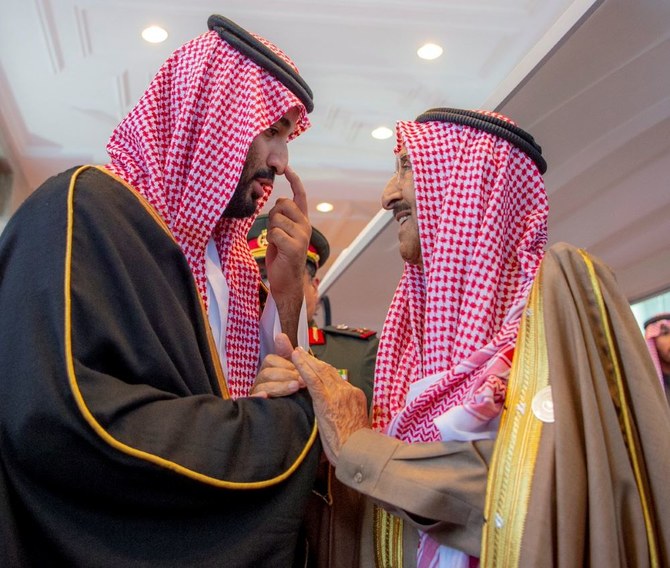RIYADH: All eyes are on the waiter as he approaches the table with the bill. Some people are winking and signaling for them to hand over the receipt, while others are trying to find alternative ways to get a hold of it.
The waiter, seemingly familiar with the situation, places the receipt in the center of the table and takes a step back. Within seconds, a commotion erupts resembling a UFC fight as everyone vies to be the one to pay the bill.
Insisting on paying the bill is a deeply ingrained habit within the structure of Saudi society. Generosity, in all its forms and levels, is a fundamental aspect of Saudi mannerisms, whether it be among friends, guests, or even strangers.
Saudi mannerism serves as one of the pillars of the Saudi national identity. It acts as a vessel through which Saudis uphold their traditions, values, language, and ideas. It is deeply rooted in the culture and plays a significant role in shaping the collective identity of the Saudi people.
Chivalry, vigor, and kindness are other Saudi traits, particularly among the younger generations. They have a natural inclination to quickly offer a helping hand to those in need.
Saudi youth volunteering to help families affected by flash floods in Jeddah, and wonderful stories about the heroics of young Saudi students abroad, are proof of the existence of these manners in today’s Saudi generation.
Naif Alsaeed, 21, from Dhahran, said: “It is in our nature, we were taught to always help others, regardless of who they are.”
Saudis have a strong sense of social responsibility and solidarity, demonstrated through their active participation in initiatives and events that contribute to the development of their society.
They exhibit social solidarity on a personal level through initiatives such as the Al-Aniya fund, which provides financial assistance and gifts to soon-to-be married couples to support them during their early years of marriage.
Saud Alotaibi, 38, from Qassim, said: “When I get invited to a wedding, my first thought is how much cash should I take out for Al-Aniya.
“It has become part of who we are as a nation, and I think it is a great habit, helping newlyweds, sort of our way of blessing them.”
On a public level, social solidarity is evident in the active participation of Saudis in blood donation campaigns. They place great importance on supporting patients and hospitals that have a continuous need for blood.
Support is also provided for prisoners convicted of financial crimes.
Saudi manners and habits, such as generosity and social solidarity, are often accompanied by gestures that further motivate them to actively contribute and assist others.
One gesture demonstrating sincerity and a willingness to help is the placing of the index finger of the right hand on the nose to reassure someone during difficult times and signal a genuine desire to assist them.
Another common gesture used by Saudis is the throwing of the agal, which is a key accessory worn by men on top of their heads. Throwing the agal is a way of expressing admiration and respect.
Saudi mannerisms hold great significance to the people of Saudi Arabia and set them apart from other nations. The importance of preserving these habits and passing them on to future generations is evident through the names of apps that Saudis use on a daily basis.
These apps often reflect the values and cultural identity of Saudis, serving as a reminder to uphold and promote their unique manners and traditions.
Governmental apps including Absher, Najiz, Furijat, and Taradhi are named after practiced Saudi habits and manners.
The Saudi manners practiced by the young generation today still adhere to the values, principles, and traditions of their ancestors.
In Saudi Arabia, fights over who pays the bill will forever erupt and there is no way around it.































